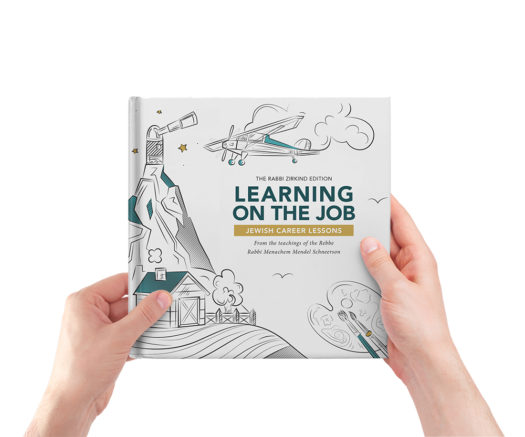
Story: The Rebbe Saved the Lawyer from Bankruptcy
In honor of Gimmel Tammuz, we present the following excerpt from the newly-published book Learning on the Job: Jewish Career Lessons by Dovid Zaklikowski:
In 1974, Nicaragua, under the dictatorship of Anastasio Somoza Debayle, was trying to recover from a devastating earthquake. Sensing a business opportunity, Massachusetts lawyer Jeffrey Kimball approached Nicaragua’s ambassador to the United States, Guillermo Sevilla Sacasa (Debayle’s brother-in-law), offering the country his assistance.
Mr. Kimball had come up with a plan to build affordable housing quickly. The ambassador liked it and had it approved. Only one obstacle remained: the project required a $5 million loan.
A bank approved the loan, with one condition. Mr. Kimball himself would need to sign off—the bank wanted the lawyer’s personal property as collateral.
Mr. Kimball hesitated. He didn’t want to put his own finances on the line, but he felt the deal was too good to pass up. Over the years Mr. Kimball had developed a correspondence with the Rebbe, and at that pivotal moment he decided to write to the Rebbe for advice. As it happened, he had another piece of news to share: his wife was expecting a baby.
The Rebbe gave his blessings for the upcoming birth, and then addressed the bank’s request. “It is clear that the general conditions which affect the problem… are of a nature which change from time to time. Indeed, as you write, this is also the reason that caused the problem of financing. At any rate, it seems at this moment that the next step does not depend on you…” Since Mr. Kimball did not want to sign personally for the loan, it seemed things were out of his control.
The Rebbe continued that while Mr. Kimball could not change the bank’s mind, he could gain clarity by strengthening himself spiritually: “While it may appear mystical, it has been borne out by experience and proved quite practical. When a Jew strengthens his bond with the Source of wisdom, which is G-d, he gains wisdom and understanding also in mundane affairs, which helps him to decide what to do and what not to do in matters of business and the like.”
The Rebbe then made a reference to Mr. Kimball’s profession. “In a legal suit, the best and weightiest argument is when one can cite a precedent from a similar case, and there is no need to substantiate and explain the reason for the judgment further, since the judgment speaks for itself.”
The Rebbe wrote that from “precedent,” his experience with others, increasing one’s commitment to Torah and mitzvahs brings positive results.
In the post-postscript of the letter, the Rebbe made a point he had made to many others: risky business was not worthwhile. “Regarding the project in Nicaragua in general,” the Rebbe wrote, “in light of the economic and political situation [there], it does not appear to be a practicable and realistic project in the near future.”
The Rebbe was referring to renewed efforts by local priests and outside human-rights groups to condemn the human rights violations of the Somoza government. Earlier that month, guerrillas affiliated with the opposition group in the country had raided a party in the house of the minister of agriculture and taken hostages, among them several leading Nicaraguan officials and Somoza relatives. To many this might have seemed merely a bump in the road, but the Rebbe assessed the risk differently. The government might be stable now, but who knew what the future would bring?
Mr. Kimball took the Rebbe’s advice and resisted pressure to sign for the loan. Over the next five years Nicaragua descended into turmoil, and when the Somoza regime ended in 1979, the country defaulted on its debts.
An excerpt from the new volume Learning on the Job: Jewish Career Lessons. The book is available at your local Judaica store or Amazon.com. Bulk orders are available from RebbeAdvice@Gmail.com.














